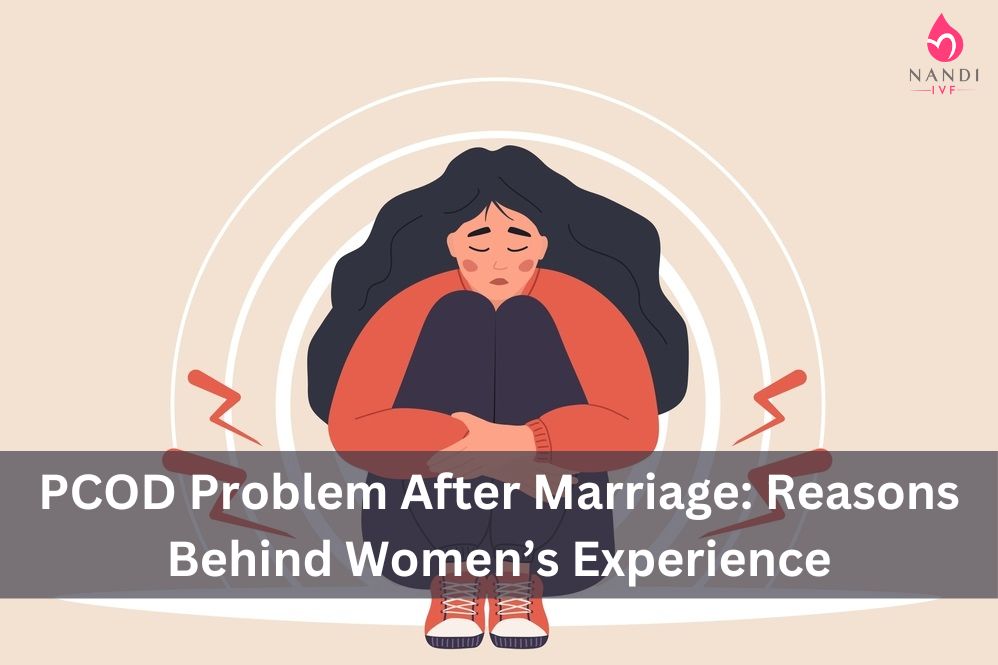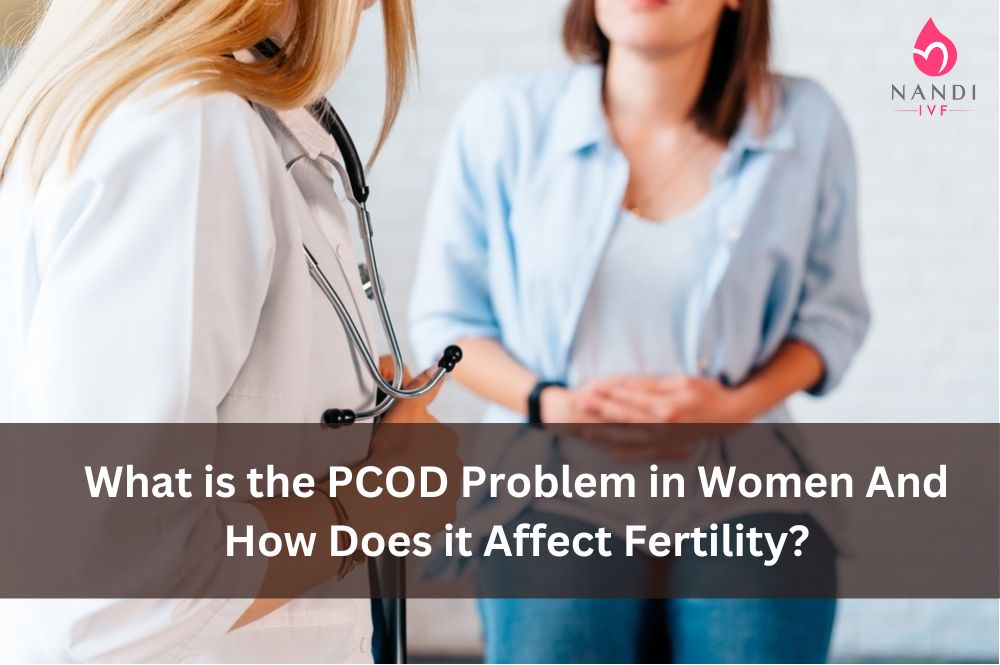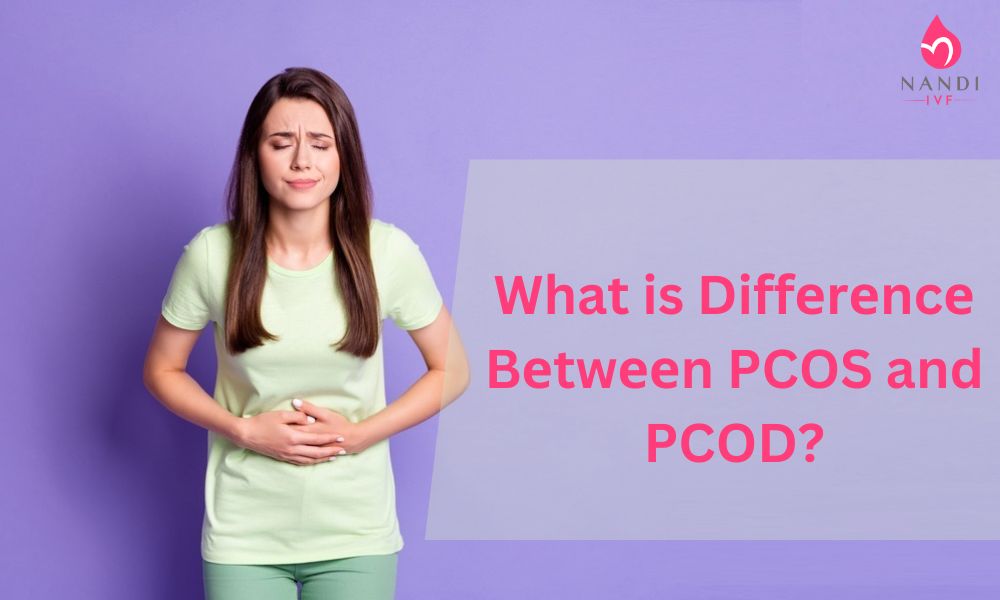PCOD Problem After Marriage: One of the most emotionally challenging diagnoses a newlywed woman can receive is discovering she has a PCOD problem after marriage. This pervasive hormonal disorder affects up to 20% of women of reproductive age in India, hindering ovulation, spurring excess weight and hair growth, and causing fertility impediments.
PCOD problem after marriage brings its own set of challenges for newly married women who wish to conceive. However, effective PCOD management after marriage through medical and lifestyle interventions offers hope. Timely action aids conception besides safeguarding long-term health. This blog will answer your queries.
Why Does PCOD Develop After Marriage?
While some women have already been diagnosed with PCOS earlier in life, others only start exhibiting signs and getting diagnosed after marriage. Some critical reasons for the PCOD problem after marriage include the following:
Hormonal Changes: Significant hormonal fluctuations contribute to the development of PCOD after marriage. The changes are mainly related to new sexual activity, cessation of birth control pills, stress, and changes in diet and sleep upon moving to a new home with the partner.
Stress: Getting married brings excitement along with significant stress that disrupts hormones. This hormonal imbalance can activate dormant PCOS tendencies or intensify symptoms in women already dealing with this condition.
Lifestyle Triggers: The transition into married life often diminishes activity levels while increasing food intake. Resulting weight gain and obesity triggers hormonal imbalances that can unmask a predisposition towards developing a PCOD problem after marriage.
Diagnosis Delay: Many women don’t check for menstrual irregularities, excess body or facial hair, etc. unless they are actively trying to conceive after marriage. This eventually delays PCOD diagnosis and leads to other health issues.
Increased Expectations: Pressure to conceive soon after marriage leads to investigations revealing a PCOD problem after marriage that may have gone undiscovered earlier.
Thus, while a PCOD problem after marriage can be primarily attributable to biological and lifestyle factors, societal expectations and focus on fertility also lead to an increase in detection rates.
Read Also: What is the PCOD Problem in Women And How Does it Affect Fertility?
Common PCOD Symptoms After Marriage
Newly married women struggling with PCOD may notice the following symptoms that can affect their self-confidence and married life:
- Irregular, missed, or heavy and painful periods.
- Significantly increased facial or body hair growth (hirsutism).
- Severe acne and skin changes.
- Thinning hair or hair loss on the scalp.
- Rapid weight gain/inability to lose weight despite diet and exercise.
- Dark patches on skin folds like neck and armpits (acanthosis nigricans).
- Multiple ovarian cysts upon ultrasound tests.
- Fertility problems and trouble conceiving.
Do bear in mind that PCOD or PCOS presents differently in each woman. You may only have mild symptoms or several distressing issues disrupting your life. Monitoring your health and being aware of changes post-marriage enables early intervention and treatment.

Read Also: Apricots in Pregnancy: Unveiling the Nutritional Bonanza for Expectant Mothers
Why Does PCOD Lead To Fertility Challenges After Marriage?
One of the top reasons PCOD poses major concerns after marriage is due to its negative impact on a woman’s fertility and ability to get pregnant. Here’s why this occurs:
Hormonal Imbalances: PCOS involves excess male hormones (androgens) and irregular ovarian function or ovulation. This affects egg quality, and uterine lining thickness and inhibits natural conception.
Lack of Ovulation: Most women with the PCOD problem after marriage either stop ovulating completely or only ovulate a few times a year. When women with PCOS don’t ovulate every month, they miss the short fertile window for conception month after month. This greatly hinders their ability to get pregnant unless ovulation resumes.
Weight Issues: Up to 80% of women with PCOS tend to be overweight or obese. The exact mechanism by which obesity affects fertility in PCOD is not fully understood, but several studies have shown that obesity can lead to insulin resistance, which can cause hormonal imbalances and ovulation problems. Insulin resistance can cause the body to produce more androgens, which can interfere with ovulation and lead to irregular menstrual cycles.
Inflammation: Studies indicate an estimated 35-80% of women with PCOS have some degree of chronic, low-grade inflammation apparent via blood tests. This chronic inflammation also hampers ovulation, embryo implantation, and continuation of pregnancy in the early weeks.
Insulin Resistance: Over 50% of women with PCOS demonstrate insulin resistance, just like in diabetes. This reduces fertility and heightens the miscarriage risk if pregnant. Losing weight, exercising, diet changes and particular medication can all help overcome associated risks.
Read Also: What Is The Best Age To Get Pregnant With PCOS?
Coping Strategies for PCOD After Marriage
Here are some constructive tips to help women diagnosed with PCOD stay positive and address associated hurdles after marriage:
Open Communication: Don’t hide PCOD struggles from your husband and family. Discuss issues sensitively; seek cooperation on diet activity levels. Share fertility treatment options and progress without blame or shame.
Medical Assistance: Consult a gynaecologist or endocrinologist for expert care. Medications, surgical procedures, and advanced fertility treatments can all vastly improve the prospects of pregnancy in PCOS despite initial obstacles.
Support Groups: Connect online or offline with women battling PCOS, too. Shared experiences and advise on dealing with anxiety or depression can give you strength during vulnerable moments.
Self-Care Routine: Practice self-love, including sufficient sleep, eating wholesome food, exercising, saying no to unsolicited pressures, taking breaks from social media, enjoying hobbies, etc. Boost your overall well-being.
Stress Management: As emotional upheavals can worsen PCOS indicators, make conscious efforts via yoga, meditation, counseling, visualisation, etc., to calm the mind. Reduce self-blame and practise positive thinking.
Healthy Lifestyle Changes: Follow medical nutrition therapy from an expert dietitian combined with 150+ minutes of weekly exercise as core PCOS treatment for regulating periods, enabling weight loss, and achieving long-term fitness.
Making sustainable lifestyle adjustments and seeking both medical and emotional support systems aids in effectively coping with post-marriage PCOS struggles. Stay determined for the best outcomes even if the process remains slow.
Read Also: Yoga for PCOS: Top Asanas to Conquer PCOS and Boost Fertility
When To See A Doctor About PCOS Fertility Problems After Marriage
If you are actively trying to conceive naturally without success for 6 months or more after marriage, consult your gynecologist right away. Other red flags warranting urgent medical review:
- Prolonged menstrual irregularity (less than 8 to 10 periods annually).
- Sudden onset of male-pattern balding, excessive facial/body hair, severe cystic acne primarily around jawline/chin region.
- Rapid weight gains and inability to shed excess kilos despite diet control and daily workout sessions.
- Worsening anxiety or depression and isolation impacting relationships.
- High blood sugar levels signalling pre-diabetes or insulin resistance issues.
Read Also: What is Difference Between PCOS and PCOD?
The Bottom Line
PCOD problem after marriage poses an unforeseen challenge for numerous newly-wed women, given its association with irregular cycles, infertility issues, unwanted hair growth, weight gain, and emotional volatility. Seeking timely and appropriate medical care, lifestyle improvements, and a compassionate psychosocial support system are vital to coping effectively.
If battling the PCOD problem after marriage and facing conception issues, explore all options confidently, including assisted reproductive technologies like IVF, IUI, ICSI, etc, offered by leaders such as Nandi IVF. Our personalised protocols and holistic fertility management can help you surmount PCOS struggles through customised solutions. Stay positive and discuss your unique needs transparently with a Nandi PCOS specialist today to begin your path to parenthood.
Read Also: Empowering Couples For Parenthood: Navigating Pregnancy With PCOS And PCOD
FAQs
Q: Can PCOD strike a married person?
Ans: Yes, PCOD can affect females regardless of their marital status. It commonly strikes during the reproductive years as women transition from puberty into early adulthood. Marital status does not prevent the hormonal imbalance that causes PCOD.
Q: Can someone with PCOD become pregnant?
Ans: Yes, someone with PCOD can get pregnant, although fertility issues are common. PCOD causes irregular ovulation, making pregnancy more difficult, but ovulation can occasionally occur, allowing pregnancy. Treatments also exist to help induce ovulation and improve chances of conception.
Q: Is PCOD a chronic condition?
Ans: Yes, PCOD is considered a lifelong chronic condition. The specific hormone imbalance and its impacts remain present unless treated. However, one can manage symptoms successfully in the long term through lifestyle changes and medication. Regular check-ups are essential to prevent complications even when symptoms improve.
Q: How can PCOD be prevented?
Ans: PCOD cannot be prevented entirely as it relates to hormones and genetics. However, maintaining a healthy weight and lifestyle from a young age will likely decrease risk or severity. Eating healthy, regular exercise, good sleep habits, and stress reduction help prevent insulin resistance and obesity from triggering PCOD in genetically prone women.
Q: What occurs if PCOD is disregarded?
Ans: Neglecting PCOD can lead to more severe symptoms and serious long-term complications like diabetes, infertility, uterine cancer, high blood pressure, high cholesterol, strokes, heart attacks, and metabolic disorders. That is why ongoing monitoring and proactive treatment in consultation with medical professionals is crucial. You should pay attention and stick to treatment plans to prevent the progression of PCOD.






